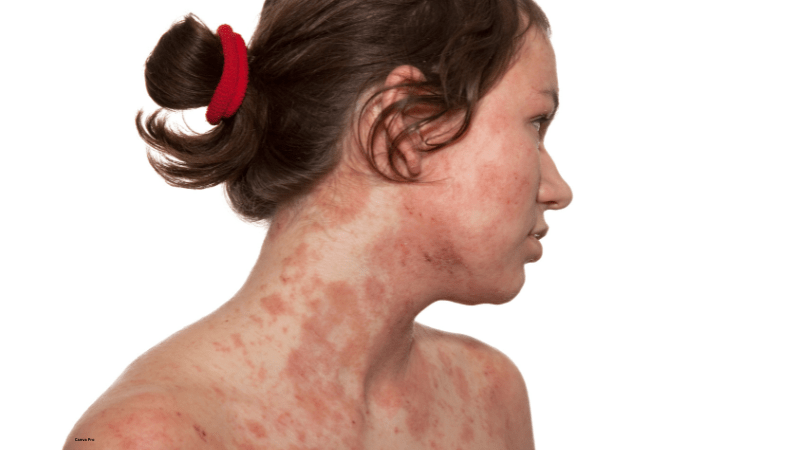Which topical treatments work best for eczema?
A comprehensive review of research reveals the most effective creams and ointments for managing atopic dermatitis.
Easing the discomfort of atopic dermatitis, the most widespread type of eczema can be a daily challenge. This itchy, inflamed skin condition often disrupts sleep, social interactions, and everyday activities.
When simple home care like gentle cleansing, regular moisturizing with emollients, and sun protection fails, your physician might suggest a prescription medication topical treatment. But which one works best? A recent study narrowed it down to a few top contenders, including topical calcineurin inhibitors like Protopic and Elidel crema.
What’s behind atopic dermatitis and the itch-scratch loop?
Atopic eczema is a long-lasting inflammatory skin problem. It commonly affects delicate areas like the face, hands, and feet or skin creases at the elbows or behind the knees.
The exact cause of atopic dermatitis remains unclear. It seems to involve a mix of genetic factors, environmental triggers, and an overactive immune system involving T-cells, all contributing to inflammation that causes itching. Scratching the itch leads to more irritation, redness, and inflammation, triggering more itching.
As this itch-scratch cycle continues, the rash worsens. The skin may break, weep, and form crusts, causing pain and increasing the risk of skin infections.

Which skin treatments proved more effective in the research?
A 2023 study published online in The Journal of Allergy and Clinical Immunology found that some FDA approved prescription topical treatments for atopic eczema outperform others.
The comprehensive study examined data from more than 200 randomized trials, encompassing over 43,000 individuals diagnosed with mild to moderate or moderate to severe eczema. The average age of participants in this extensive research was 18.
They compared nearly 70 different prescription creams or ointments, broadly termed topical treatments, designed for application to affected skin areas.
These treatments fall into five categories. If you have eczema, you may not recognize their generic names, but your healthcare providers likely will:
Topical corticosteroids, grouped into seven classes from most to least potent, reduce the release of an inflammatory chemical called phospholipase A2. Topical Janus kinase (JAK) inhibitors block inflammatory signals as they enter cells. Topical PDE4 inhibitors boost the production of a chemical called phosphodiesterase-4, or PDE4, and decrease the body’s inflammatory response. Topical calcineurin inhibitors like tacrolimus crema and Elidel crema help suppress the production of chemical messengers that signal the body to increase its defenses. These calcineurin inhibitor drugs are examples of calcineurin creams and tci medication—other topical treatments, including antibiotics and prescription moisturizers.
The study focused on treatments that showed important outcomes for patients, particularly those that best-improved quality of life by reducing flares, stinging, and burning sensations.
Which atopic dermatitis treatments proved most effective?
The study revealed both expected and surprising results.
The most effective treatments identified include two calcineurin inhibitors and two moderate-potency topical steroids. The topical calcineurin inhibitors list includes pimecrolimus (marketed as Elidel) and tacrolimus (sold under Protopic), the most common examples. The high-efficacy corticosteroids are fluocinolone acetonide (available as Synalar cream 0.025%) and triamcinolone acetonide (found in Kenalog cream/ointment 0.1%).
Efficacy of Treatments
Pimecrolimus improved six outcomes, excelling in reducing sleep disturbances and eczema flares. High-dose tacrolimus (0.1%) enhanced five outcomes, particularly effective for itch and flare reduction. In an Elidel vs. Protopic comparison, both performed well. Moderate-potency steroids improved four to six outcomes, best-addressing itch, flares, and severe side effects.
Applying topical cream twice daily showed little to no added benefit over once-daily use. Combination therapy using a topical calcineurin inhibitor with topical steroids may help manage skin sensitivity.
As for less effective treatments, the study found topical antibiotics to be among the least beneficial for managing eczema. Topical calcineurin and calcineurin inhibitors over the counter are unavailable, as they require a prescription.
Safety Considerations
Questions remain about the long-term safety of calcineurin inhibitors and eczema treatments, including a potentially slightly increased skin cancer risk and lymphoma risk. However, they are considered safe and effective for maintenance treatment when used as directed.
The key takeaway? “Stick with your current treatment if it’s working and not causing major side effects,” she advises. “If you’re not seeing good results, it’s time to chat with your doctor or a skin specialist about trying a different cream or ointment like a calcineurin inhibitor cream or psoriasis zalf.”
Reference:
Heidi Godman (October 12, 2023). Which skin creams are most effective for eczema?. https://www.health.harvard.edu/blog/which-skin-creams-are-most-effective-for-eczema-202310122981. Accessed September 24, 2024
You may also like to read:
Nutrition’s Role in Hair Loss Treatment: Vitamins, Minerals & Loss
Category
- Health Issues (72)
- Healthy Diet (48)
- Herbs for Health (11)
- Mental Health (33)
- Skin Care (20)
